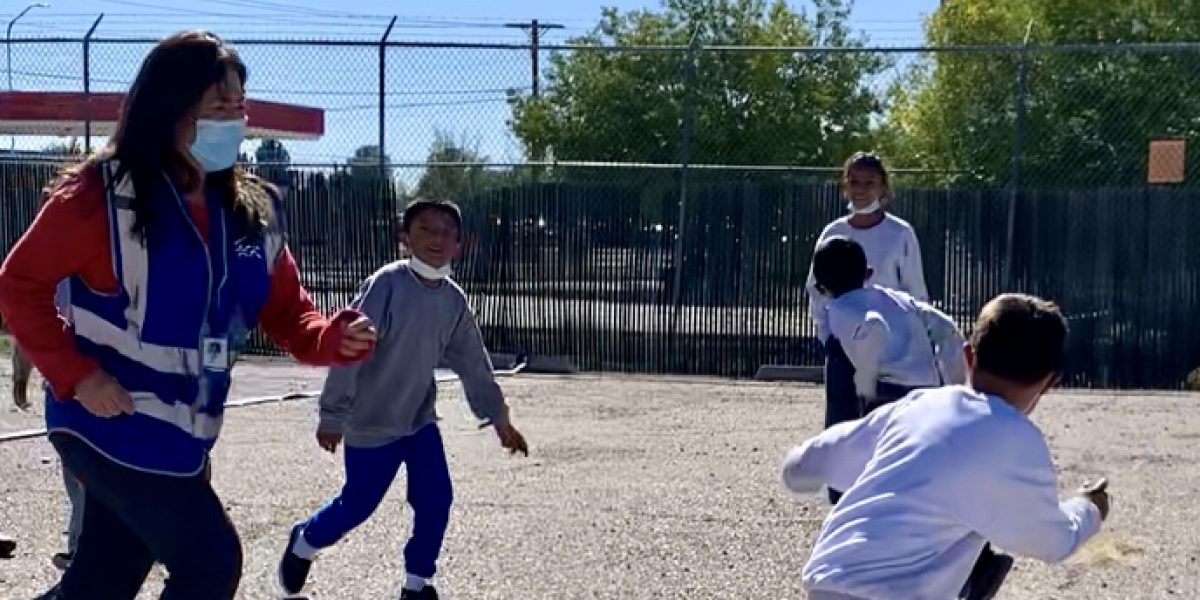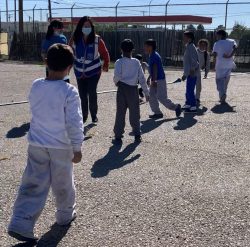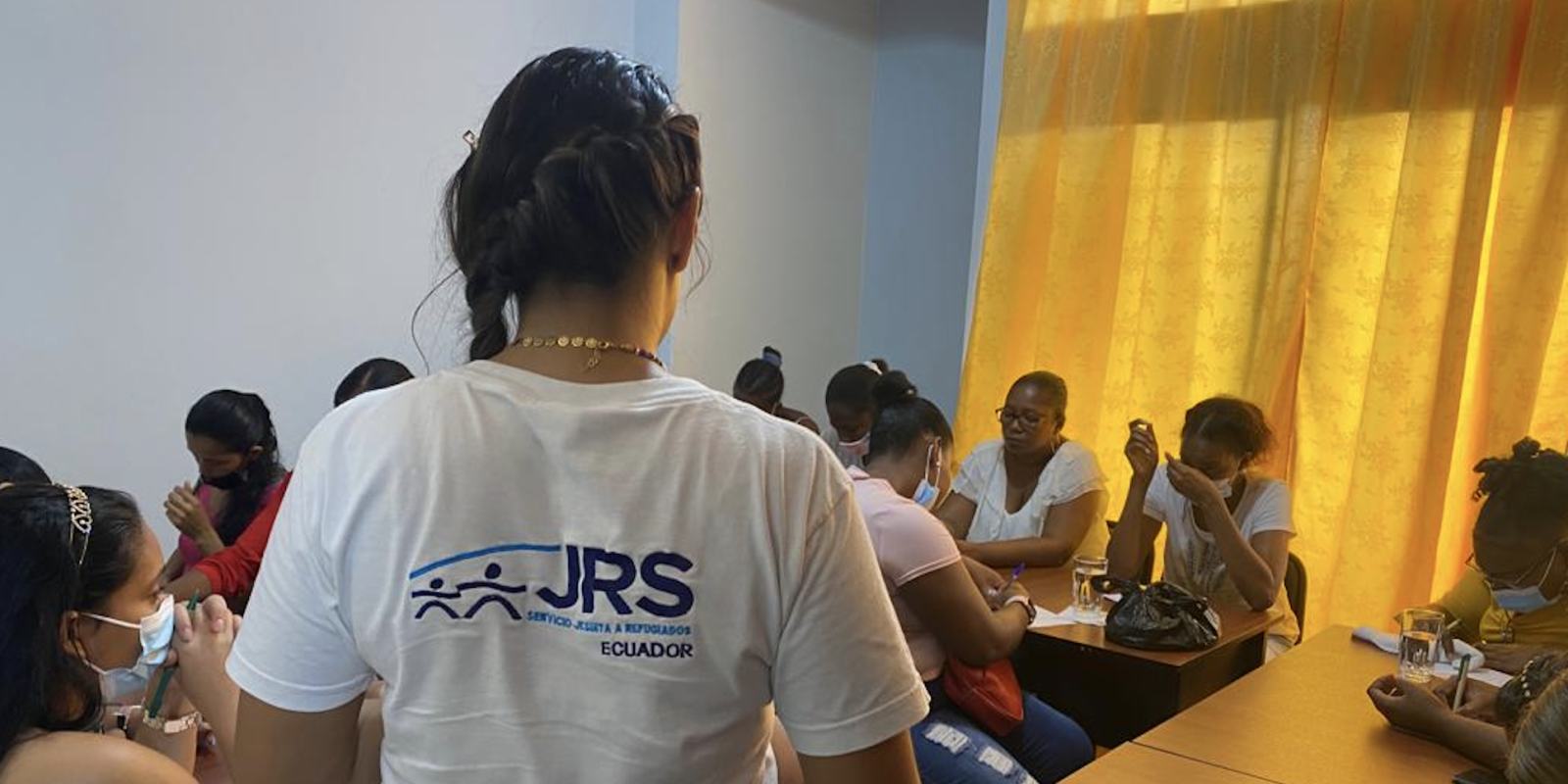JRS/USA: Mental Health and Psychosocial Support (MHPSS) Services at the U.S. Southern Border
12 January 2023|Brooke Wood

“They’re not ‘survivors’, they’re thrivers. But they are suffering,” said Georgina Sánchez, empathetically.
Georgina Sánchez, Ph.D., is the Mental Health Specialist for the JRS/USA Border Program, Caminar Contigo, based in El Paso, Texas. Her primary research and work has been with children in vulnerable conditions and unfortunately, the work is nonstop at the US southern border. At just one shelter alone in Las Cruces, Georgina estimated about 500 migrants, greatly exceeding the capacity, trying to seek refuge in the US.
Despite efforts from local NGO’s and religious organizations, there’s nowhere near the assistance necessary to accommodate the need. Shelter staff are overworked and overwhelmed, leading to a high turnover rate. “The first priority is always to give them food before helping them to self-regulate.” Many of the migrants have made trips nearly 2,000 miles long on foot to get to El Paso. After a journey that long, they’re mentally, physically, and emotionally exhausted.
 For incoming families with children, after ensuring access to food, Georgina works on breathing exercises before heading into ‘play mode’ with the kids. “When they arrive,” she starts,” they’re shaking and not only because they’re cold. They’re shaking because their nervous systems are completely dysregulated.”
For incoming families with children, after ensuring access to food, Georgina works on breathing exercises before heading into ‘play mode’ with the kids. “When they arrive,” she starts,” they’re shaking and not only because they’re cold. They’re shaking because their nervous systems are completely dysregulated.”
Her studies have found that the most basic individual mental and physical functions become unbalanced when a child is terrified. Thus, a psychotherapeutic intervention begins based on a body that can sleep, a body that feels safe, and a body that can move (Sanchez-Garcia, 2022; Porges, 2022). To put plainly, just playing a game of tag can help a child start to regulate their nervous systems.
In instances this dire, the complex trauma can potentially disrupt a child’s development. For example, it is impossible to reverse many of the effects of malnutrition and recover from the time of deprivation, which impacts their growth.
However, mental health services in locations of migration have proven to be effective in the overall process of resettlement, regardless of age. For the past several years, JRS has worked to integrate mental health support into all JRS programs which can look different for each person as we offer a holistic and individualized approach. And for young children, this simply looks like playtime with other children.
As for the parents? “The parents are so brave,” says Georgina. “They come only to give their children a better life. They come knowing the stigma they themselves may face being a migrant.” She mentioned that she makes sure to tell them how proud she is of them for what they’re doing for their family.
When asked how she’s able to commit to work that can be emotionally taxing, “love,” she answered. “You need to put your heart and soul into this. You need to love them,” says Georgina.
In regards to what the general public could do, “Anything. Just do something,” she said. “Call a representative, volunteer, donate, and if you’re someone enforcing the policy, do it in a humane way. Treat them with love and dignity. As for JRS supporters, your contribution, no matter how much, adds up and is invaluable to our MHPSS programs at the border. It ensures that staff members such as Georgina, can continue providing these vital services.
For more information on JRS MHPSS work around the world, please visit this page.
Learn more about volunteering with the Migrant Accompaniment Network here.



